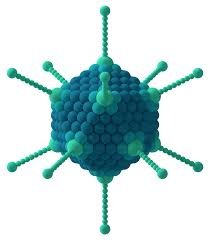
Representative Image
Tessa Therapeutics, a clinical-stage cell therapy company focused on autologous and allogeneic therapies for a wide range of cancers, has announced 'proof-of-concept' data from the preclinical study of TT16, a first-of-its-kind combination immunotherapy that integrates Chimeric Antigen Receptor (CAR) T cell therapy and oncolytic adenovirus expressing immunomodulatory molecules for the treatment of Human Epidermal Growth Factor Receptor 2 (HER2)-positive solid tumors.
The results of the preclinical study, a collaboration between Tessa Therapeutics and Baylor College of Medicine, were presented at the 2019 American Society of Gene & Cell Therapy (ASGCT) Annual Meeting in Washington, D.C.
"The preclinical data presented today demonstrates the feasibility of combining CAR T cell therapy with other immunotherapy agents to overcome the challenges of the immunosuppressive tumor microenvironment and enhance the T cells' anti-tumor activity against HER2-positive cancer cells," said Dr. Ivan D. Horak, M.D., President of Research and Development, Tessa Therapeutics. "These results support our plans to further develop this next-generation product candidate. We look forward to progressing the therapy into a Phase I clinical trial for patients with HER2-positive solid tumors."
In the preclinical study, HER2-specific CAR T anti-tumor activity was evaluated in HER2-positive human solid tumor animal models. The therapy consists of a two-step process, in which the models were first injected with a binary oncolytic adenovirus (CAd) followed by the infusion of HER2-CAR T cells.
The combination therapy showed durable responses in the various tumor models. Furthermore, CAd secreting PD-L1 blocking antibody and activation cytokine IL-12p70 improved the persistence and activity of the HER2-CAR T cells even in advanced disease models showing metastasis similar to those seen in patients.
The data also demonstrates that local treatment of this 'all-in-one' therapy can systemically enhance the responses of HER2-CAR T cells against HER2-positive cancer cells.




